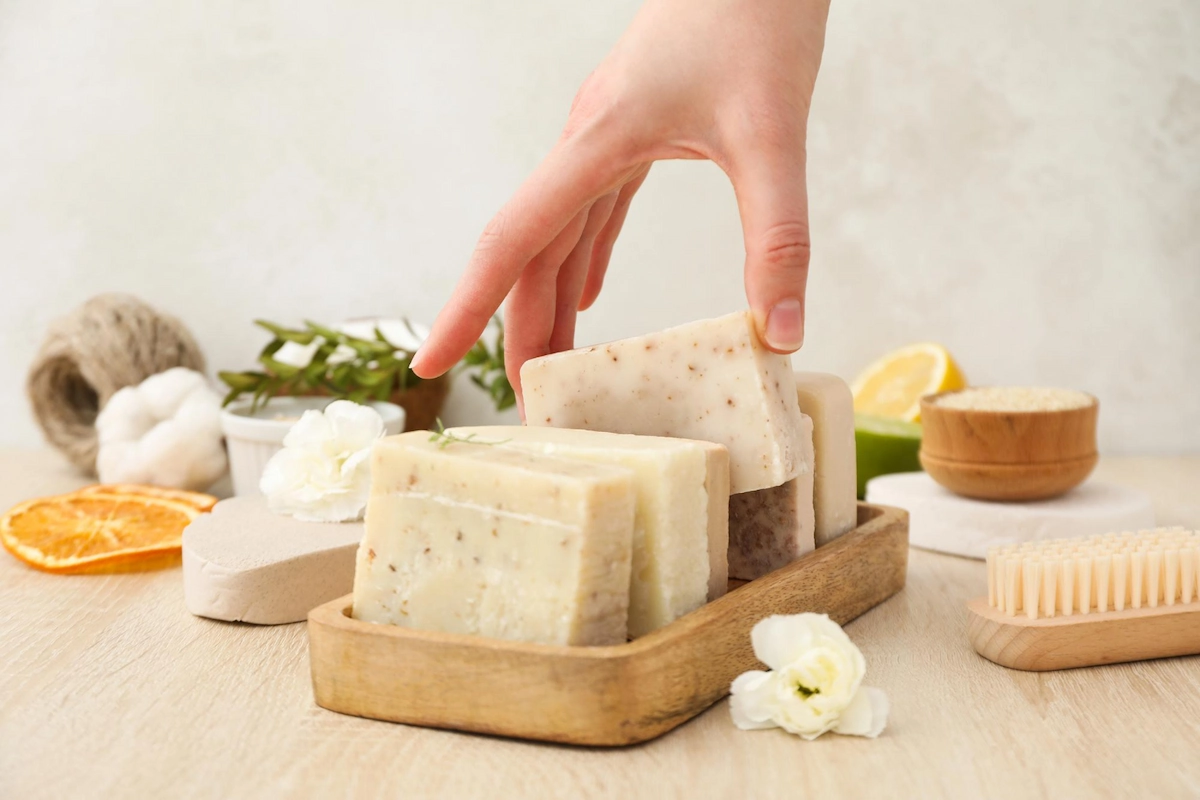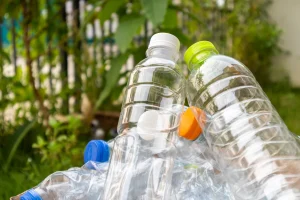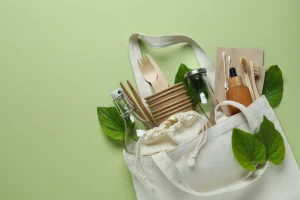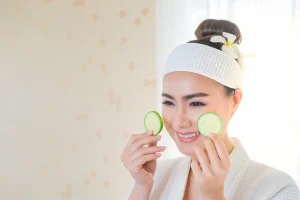Table of Contents
Every year, Indonesia produces about 1.2 million kilolitres of used cooking oil (UCO), according to Traction Energy Asia. UCO usually comes from households and small businesses, especially in Java–Bali areas.
Many people throw away used cooking oil because it is considered unhealthy to reuse. This is because the saturated fat content in used cooking oil is higher than new oil, which can increase cholesterol and the risk of heart disease.
But, did you know? It turns out that UCO can be used for other things, one of them is soap making. Are you curious about how to make soap from used cooking oil? Read this article!
What Is Used Cooking Oil?
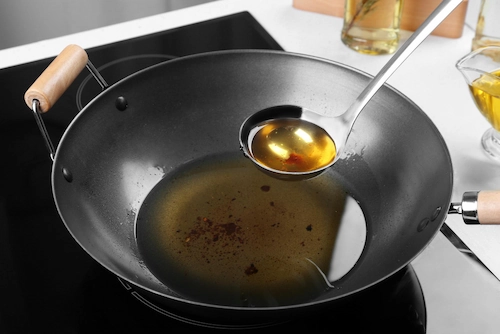
Used cooking oil (UCO) is a repeatedly used oil for frying food. After being reused, the color, odor, and taste of the oil will change due to oxidation and food particle contamination.
In general, UCO comes from oils, like vegetable or corn oil. It is widely used in households or businesses; thus, it is important to know how to process it to prevent environmental and health risks.
How to Make Soap from Used Cooking Oil
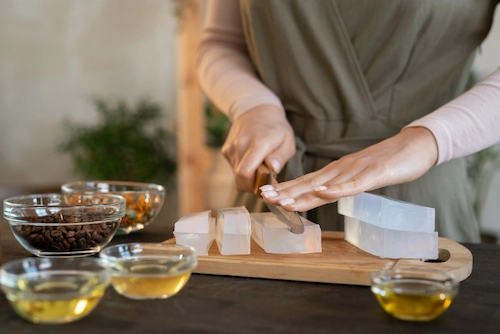
You might see used cooking oil as a household waste. Yet, it has great potential to be processed as something valuable, such as a laundry soap.
With the right process, you can reuse this oil and reduce the negative impact on the environment. If you are interested in making the soap, follow the steps below:
1. Ingredients
The first step of how to make soap from used cooking oil is preparing the ingredients. There are several ingredients you must have, such as:
- 500 g of used cooking oil.
- 190 g of distilled water (pandan or soap nuts water will also do).
- 65 g of NaOH (caustic soda) – if you want your soap to set faster, use 70 g.
- 100 g of bamboo charcoal (to add color and more benefits).
- Fragrance oil (to make the soap smell pleasant).
Read also: 7 Inorganic Waste Management Ideas, from Simple to Complex
2. Tools
To make soap from UCO, you need some tools as follows:
- Self-protection from caustic soda: Wear long-sleeve clothes, goggles, rubber gloves, and masks. This is important to protect yourself from the caustic soda that can irritate.
- Containers: To mix the oil and the caustic soda.
- Heat-resistant containers: To mix caustic soda with water. Make sure that the container is strong enough to handle heat.
- Heat-resistant molds: To shape the soap. Make sure that the molds are strong enough to handle heat.
- Whisk and spatula: To mix the ingredients safely.
Note: Avoid using aluminium tools because caustic soda can react with them and cause damage.
3. Steps
With the right steps, you can make your laundry soap at home and reduce oil waste. Here are the steps you can adhere to:
- Burn charcoal to activate the properties, enabling it to clear and neutralize UCO.
- Soak the charcoal in the used cooking oil for 24 hours. This process will make the oil cleaner to use.
- Next, mix caustic soda with water. Ensure to pour caustic soda into water and not the other way, because it can be hazardous. Then, mix well.
- Pour the caustic soda mixture into the cool UCO (30°C). Make sure that the oil is not too hot to prevent a harmful reaction.
- Mix all ingredients well and add two tablespoons of fragrance oil to make the soap smell good.
- Mix well and pour the soap into the molds.
- Let the soap set for about 2 days, then take it off the mold.
- You can use the soap after 4 weeks when it is already hardened.
Other Used Cooking Oil Products
Processing used cooking oil is important to reduce the waste and impact on the environment. Yet, it is not advised to reuse UCO for cooking.
Worry not, the UCO can be processed into other valuable products. Here are some examples of UCO processed products:
1. Biodiesel
UCO can be processed to be biodiesel, a fuel made of oil and alcohol. Biodiesel comes from renewable sources, such as used cooking oil, and can be an alternative to fossil fuels.
In this regard, Chandra Asri Group collaborated with TUKR (part of Biofront), initiating UCO collection as a caring action for a sustainable ecosystem.
The collaboration is realized by Manajemen Pengumpulan Minyak Jelantah untuk Lingkungan or MINYAKU. This program is one of the circular economy initiatives by Chandra Asri Group and TUKR, encouraging the public to gather used cooking oil around the factory in Cilegon.
To ensure that the collection process is organized, this program also involves waste banks, associations, and communities. People who exchange used cooking oil will receive a savings balance based on the number of liters deposited. Interesting, right?
Read also: What is Zero Waste? Learn the Benefits and How to Apply It
2. Candle Making
Next, UCO can be used to make candles. This used cooking oil processed product helps reduce used oil waste that can pollute the environment.
You can make a candle out of UCO by filtering, melting, molding, and packing it to be more appealing. Despite coming from used cooking oil, this candle has a similar quality to the common candles.
3. Additional Fertilizer
Did you know that UCO can help plants grow? This is because used cooking oil has high saturated fat that can be utilized as fertilizer.
Remember, this oil cannot be used as the main fertilizer. Thus, you still need basic fertilizers, such as manure or compost, and add chemical fertilizers, such as urea, SP, and KCL, to grow your plants.
That is how to make soap from used cooking oil you should know. Aside from reducing the waste, the processed product is more eco-friendly and can be a safe alternative to cleaning products.
If you have many UCOs, do not throw them away! There are many ways to leverage it wisely with the right methods.
Moreover, you can join the #SiPalingSustainable challenges to apply an environmentally friendly lifestyle with simple actions.
Register yourself now and take part in a greener future with Indonesia Asri!
Read also: Zero-Waste Community in Indonesia, Understand Their Roles!



